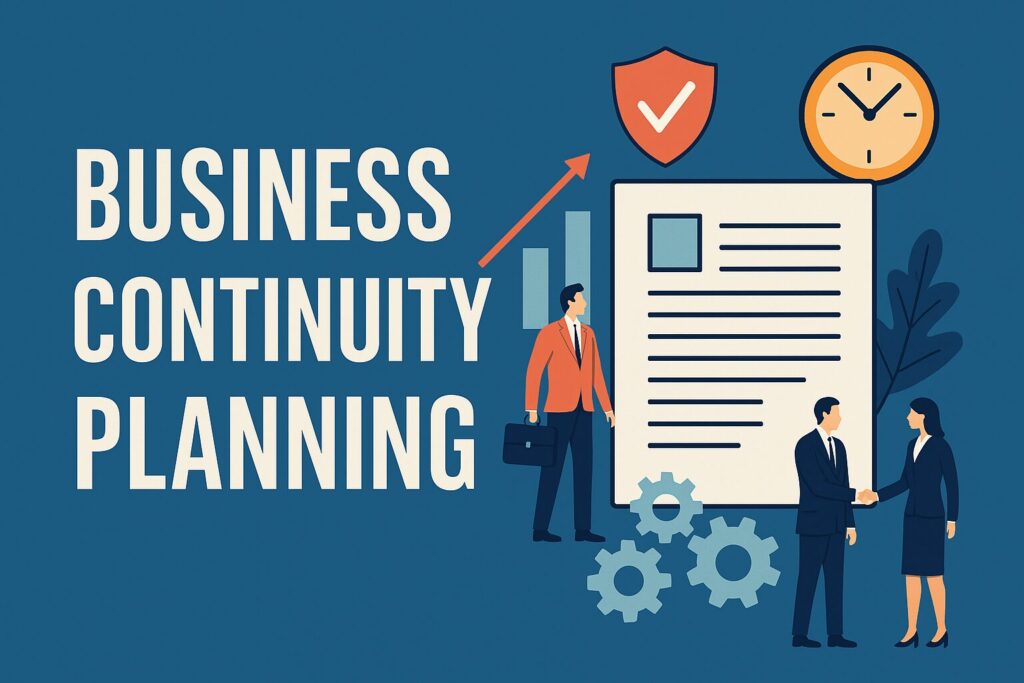Business Continuity Planning: Protecting the Future of Your Business
Date: 09/07/2025
Author: Prime Law Group

Running a business means juggling day-to-day operations, but have you thought about what happens if something unexpected occurs? Illness, disability, retirement, or even the sudden loss of an owner can put your entire company at risk. That’s where a business continuity plan comes in.
In this article, we’ll cover:
- What a continuity plan is
- Why it matters for small and mid-sized businesses
- How it connects with operating agreements and buy-sell agreements
- The key things every owner should think about
What Is a Business Continuity Plan?
A business continuity plan is a roadmap for how your business will keep running—and transition smoothly—when something disrupts ownership or management.
Instead of scrambling during a crisis, your continuity plan answers questions like:
- Who steps in to manage the business if the owner can’t?
- What happens to an owner’s shares or membership interest?
- How will the business be valued and funded during a transfer?
Why You Need a Continuity Plan
Without a continuity plan, even a profitable business can fall apart quickly. Risks include:
- Family disputes over ownership or control
- Employee turnover due to uncertainty
- Lost clients if confidence in stability drops
- Disputes among co-owners about valuation or management
- Difficulty selling or transferring ownership without clear terms
A continuity plan gives everyone clarity, reduces conflict, and safeguards the value you’ve built.
Operating Agreements, Buy-Sell Agreements, and Continuity Planning
Your continuity plan should align with the legal documents that govern your business:
Operating Agreement (for LLCs)
Defines management, profit distribution, and ownership. Should address what happens if a member dies, becomes disabled, or withdraws.
Shareholder or Partnership Agreement
For corporations and partnerships, these set out similar ownership rules.
Buy-Sell Agreement
A key piece of most continuity plans, the buy-sell agreement determines:
- Who can buy a departing owner’s interest
- How the business is valued (formula, appraisal, fixed price)
- Which events trigger a buyout (death, disability, retirement, divorce, bankruptcy, etc.)
- How the buyout will be funded (life insurance, installment payments, reserves)
Key Things to Include in Your Continuity Plan
When building or reviewing your plan, think through these essentials:
- Ownership Succession – Who inherits or buys the business?
- Management Transition – Who will run operations day-to-day?
- Valuation Method – How will ownership interests be valued?
- Funding the Buyout – Life insurance, loans, or installment payments?
- Triggering Events – Be clear on what events activate the plan.
- Employee & Customer Communication – How to reassure stakeholders.
- Legal & Tax Strategy – Ensure compliance and tax efficiency.
- Insurance & Risk Management – Cover ownership transfers and disruptions.
- Regular Review – Update your plan every few years or after major changes.
Next Steps for Illinois Business Owners
If you don’t already have a continuity plan—or if yours hasn’t been reviewed in years—now is the time to act.
A comprehensive plan:
- Protects your family and co-owners
- Reassures employees and clients
- Preserves the value of your company
- Provides peace of mind for the future
Prime Law Video
Next Step
At Prime Law Group, we help business owners in McHenry County and throughout Illinois create continuity plans tailored to their goals. We’ll make sure your operating agreement, buy-sell agreement, and succession plan all work together seamlessly.
📞 Contact us today to schedule a consultation and protect your business for the future.
